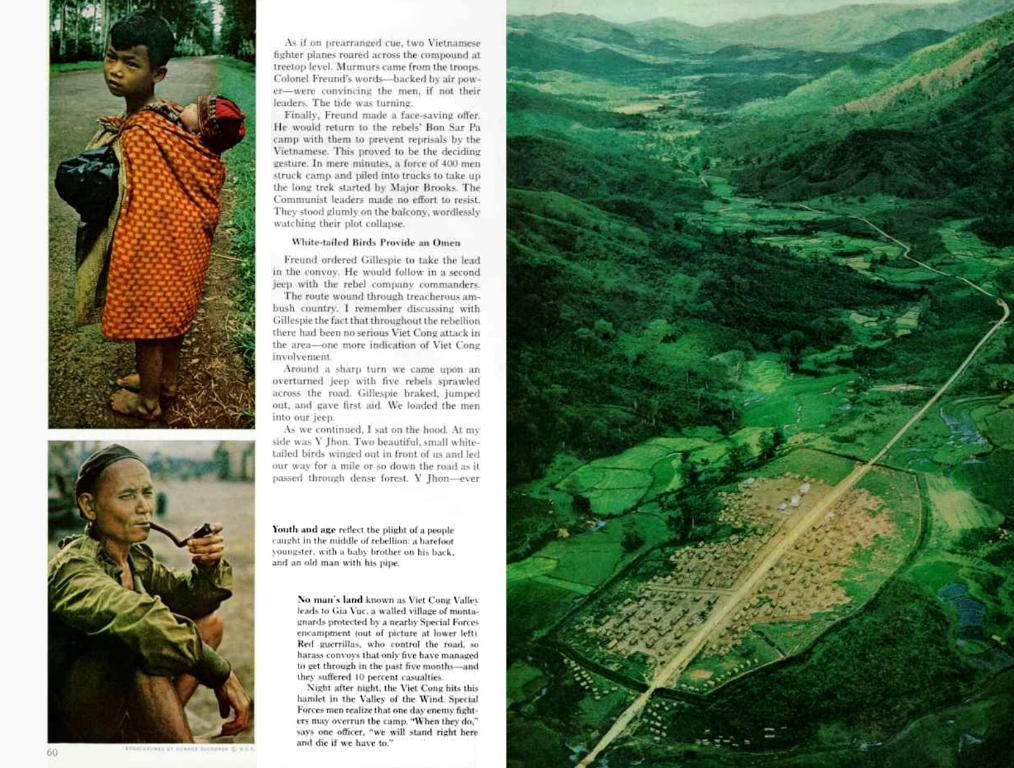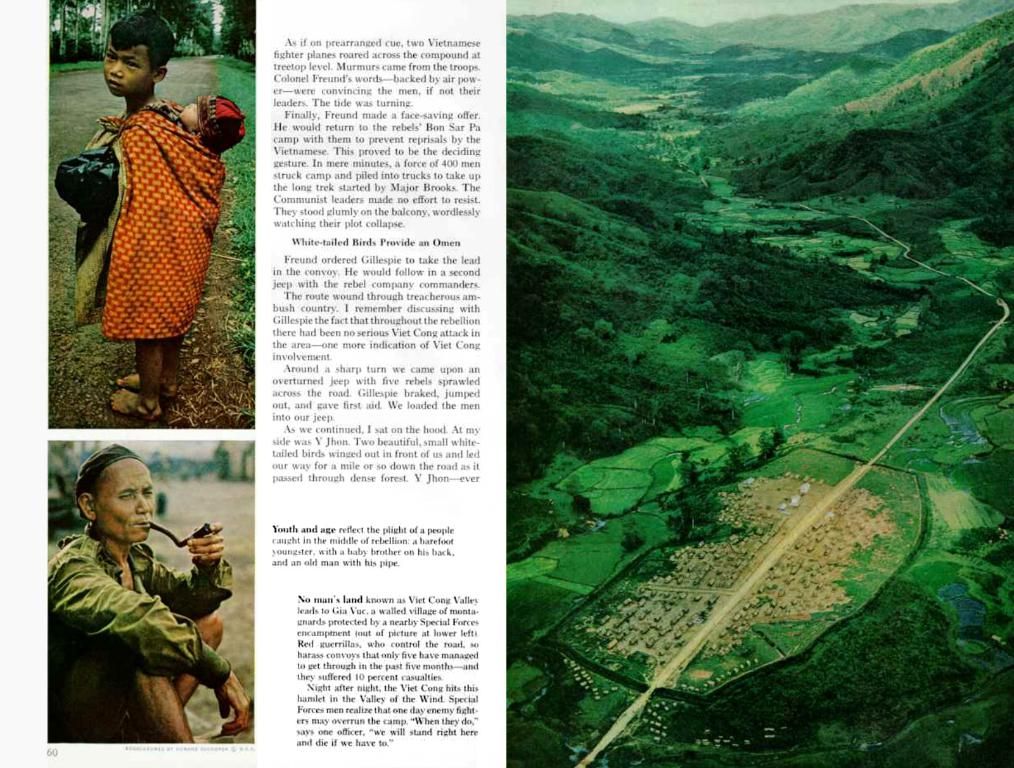The Wolf's Place in Germany's Hunting Regulations: A Contentious Issue
Government officials push for integration of the wolf species in national hunting regulations - Government Official Advocates for the Inclusion of Wolves in National Hunting Regulations
Germany's scheduled shift in wolf protection laws has sparked heated debates among environmental ministers, agricultural groups, and conservationists alike. The proposed amendments aim to integrate wolves into the national hunting law, addressing concerns about livestock predation in the countryside.
The discussion reached a consensus at Mettlach-Orscholz, Saarland, where all federal states' environment ministers agreed that the inclusion of the wolf in Germany's hunting law is long overdue. "We urgently need a legally secure and judicially enforceable solution," emphasized Mecklenburg-Vorpommern's environment minister, Till Backhaus (SPD).
Brandenburg, Germany's wolfiest state with numerous packs, has been at the forefront of this debate. The state's agriculture and environment minister, Hanka Mittelstaedt (SPD), confirmed the need for changes, stating, "This is a clear signal for me that we were on the right track with these demands." The ministers also renewed calls for more funding from both the federal and EU levels to aid in wolf prevention and compensation for damages.
While the exact implications remain under discussion, recent European Parliament decisions pave the way for a more flexible approach to wolf management. On May 8, 2023, the EU voted to downgrade the wolf's protection status from "strictly protected" to "protected." This change will presumably enable regulated hunting under strict criteria in regions prone to conflicts with livestock.
According to the Federal Agency for Nature Conservation, there were about 209 wolf packs with around 1,600 animals in Germany as of 2023/2024. These wolves can be found in an area stretching from Saxony to Lower Saxony, encompassing regions such as Brandenburg, Saxony-Anhalt, Mecklenburg-Vorpommern, and Thuringia.
The controversy surrounding this move has split opinions. Supporters argue that increased wolf numbers threaten the livelihoods of farmers and their livestock, advocating for more flexible management tools to minimize attacks. Opponents, however, fear that downgrading protections could hinder the wolf's recovery in Europe, labeling the move as indiscriminate and lacking a strong scientific basis.
The German public's views are divided, with 53% either opposing or indifferent to wolf hunting, and 67% viewing wolves as part of Germany's natural wildlife. This divide illustrates the complex interplay between conservation, rural interests, and public sentiment.
| Aspect | Current Status/Details ||----------------------|-----------------------------------------------------------------------------------------------------------|| EU Protection Status | Downgraded from "strictly protected" to "protected" as of May 8, 2023, enabling regulated hunting under strict criteria || German Law Changes | Proposed inclusion of the wolf in hunting laws; streamlined authorization for farmers to respond to wolf threats || Public Opinion | Divided; 53% oppose or are indifferent to wolf hunting, 67% see wolves as a natural part of German wildlife || Controversy | Agricultural concerns vs. conservationist fears of population decline |
In light of the recent Council Directive on the approximation of the laws of the Member States relating to the labelling of foodstuffs, concerns have arisen regarding the potential impact on the health-and-wellness implications of organic livestock production in the face of climate-change and the fluid nature of wolf populations. Given the scientific evidence of wolf dietary habits, these changes could influence the environmental-science balance in the agricultural landscape.
The discussion around the inclusion of wolves in Germany's hunting law and the downgrading of their EU protection status from "strictly protected" to "protected" has led to a contentious debate, mirroring the wider focus on finding sustainable solutions for conservation, agriculture, and public sentiment.




